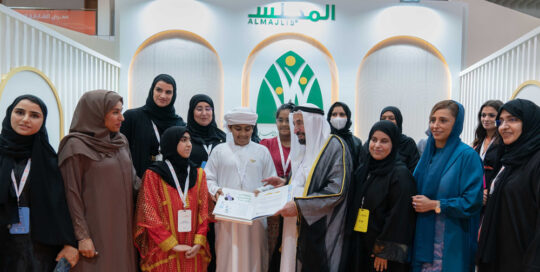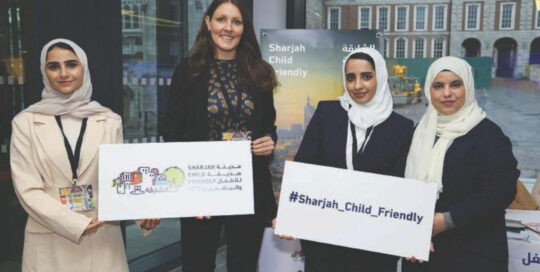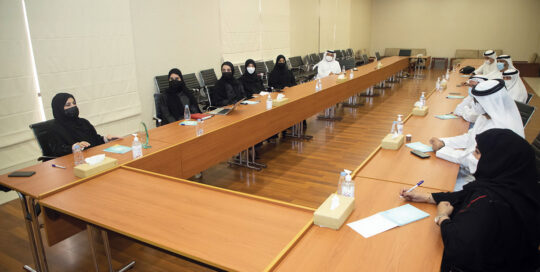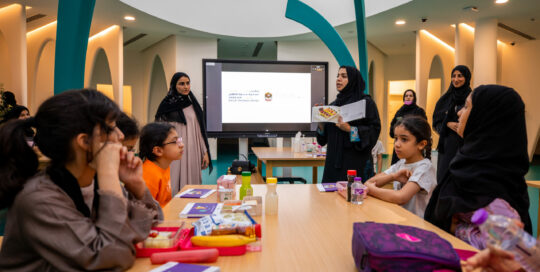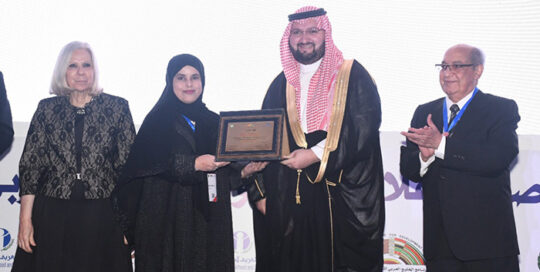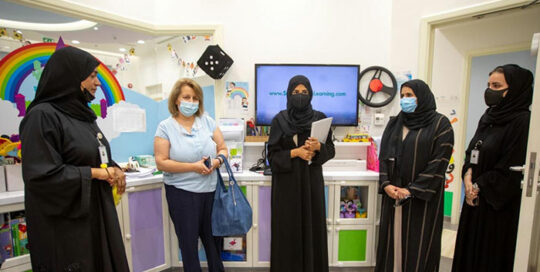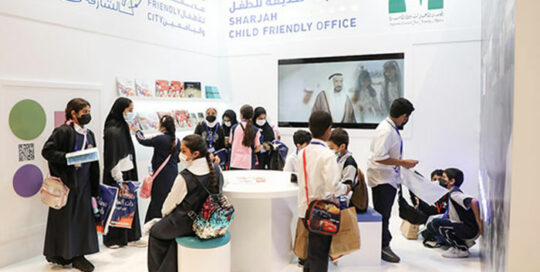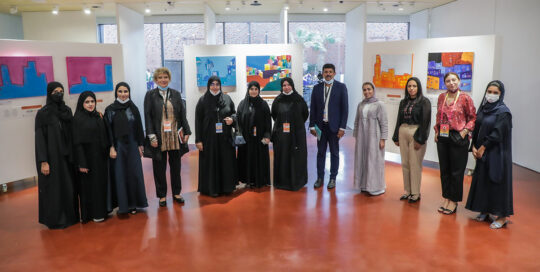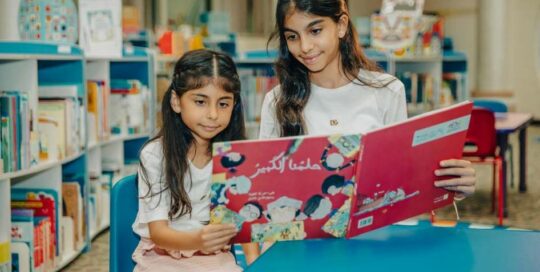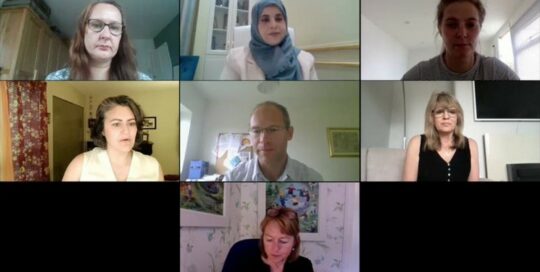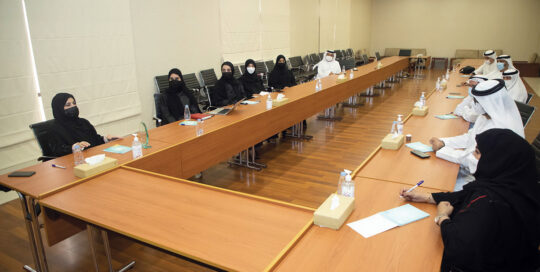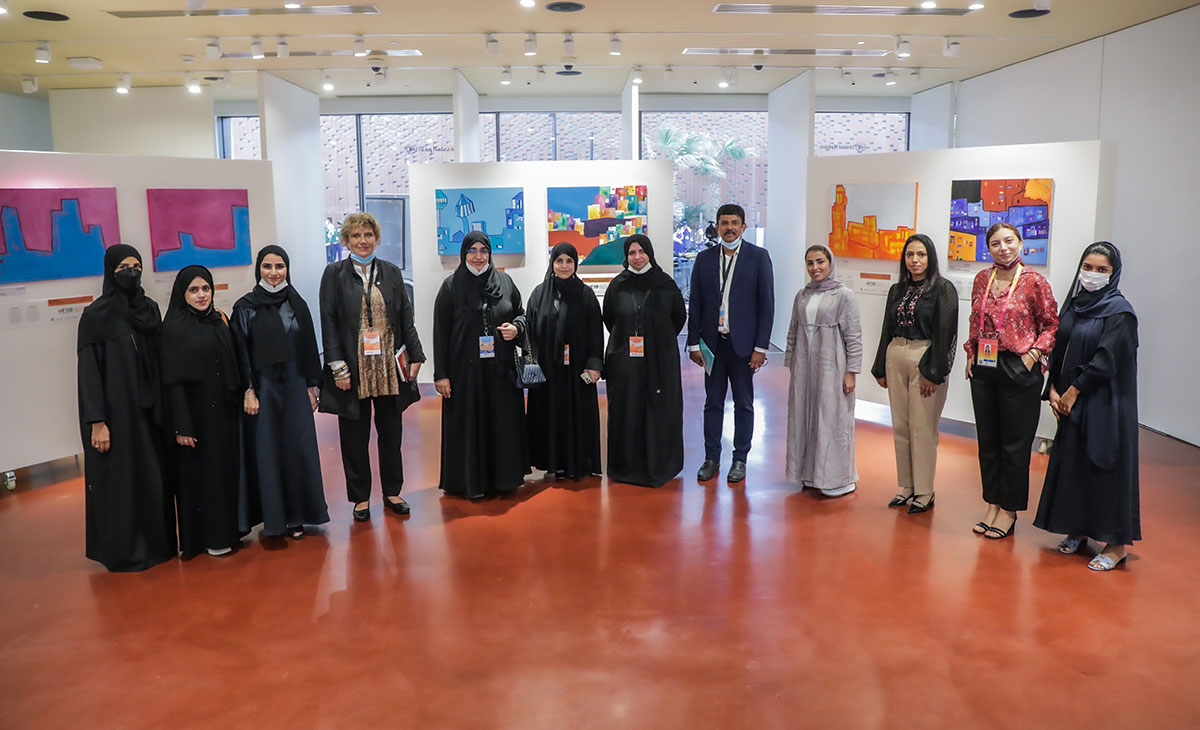
Sharjah has set a global benchmark in child friendly urban planning best practices with the launch of the “Sharjah Principles for Child-Friendly Urban Planning” on Sunday at Expo 2020 Dubai. The pioneering design guide which puts children at the heart of urban planning, has been developed by the Sharjah Child Friendly Office (SCFO)’s Child Friendly Urban Planning (CFUP) project in strategic partnership with Sharjah Urban Planning Council (SUPC), UNICEF and UN Habitat. The launch ceremony was held in Expo’s Opportunity Pavilion, at the UN-Hub, in the presence of Dr. Khawla Al Mulla, Secretary General of the Supreme Council for Family Affairs (SCFA); Dr. Hessa Khalfan Al Ghazal, Executive Director of SCFO, Saji Thomas; Chief of Child Protection, UNICEF; Kerstin Sommer, Representative of UN Habitat; and a recorded speech by Eng Khalid AI Ali, Secretary General of the of Sharjah Urban Planning Council (SUPC). Coinciding with the World Cities Day, observed globally on Oct.31 to raise awareness on sustainable urbanisation, the launch of the Sharjah Principles reflects the emirate’s firm commitment to human-centric, sustainable and inclusive development. The key architect of the 10 principles, Child Friendly Urban Planning (CFUP) project, was instituted by SCFO in 2017 to realise Sharjah’s visionary child-friendly approach to urban planning, which seeks ensure the basic rights of children and youth from different cultures and exhibiting varied competencies without any discrimination. This includes their right to express their opinion and partake in the decision-making process, thereby actively furthering SCFO’s efforts to improve their quality of life through child-responsive urban planning. The CFUP project was officially launched as part of SCFO’s Sharjah Child Friendly City Strategic Plan 2018-21, which has been worked on by the Supreme Council for Family Affairs (SCFA) affiliate in partnership with SUPC, UNICEF CFCI and UN Habitat. The Sharjah Principles for Child-Friendly Urban Planning build on the emirate’s approach of putting children first, with a focus on their specific needs in urban environments. It presents a global model for designing child-friendly cities and will serve as a reference for Sharjah government bodies and relevant entities working in urban planning, architecture, roadworks, municipality, including specialists, engineers, designers and developers engaged in planning public spaces. Dr Khawla emphasised that Sharjah Principles was a major achievement for SCFO, whose vision is to ensure that every child has the right to access to friendly spaces, breathe clean air and engage with and participate in the decisions that will impact their future. She added “Every milestone achieved in Sharjah expands on the vision of His Highness Sheikh Dr Sultan Bin Muhammad Al Qasimi, Supreme Council Member and Ruler of Sharjah, to focus on new accomplishments that will incrementally enhance the prosperity of community members. The launch of the Sharjah Principles also realises the directives of Her Highness Sheikha Jawaher bint Mohammed Al Qasimi,wife of Sharjah Ruler, and Chairperson of SCFA, on child and family-welfare related issues.” For her part, Dr Hessa said, “Befitting its reputation as the centre of art and culture, Sharjah is promoting the Principles for Child-Friendly Urban Planning in an innovative manner. This is also a celebration of one of the first ever collaborations between the UN Habitat and an Arab city on the field of child-friendly urban planning, and quite appropriately, we are launching the principles from the UN Hub atthe Expo 2020 Dubai.” The SCFO Director thanked the project’s strategic partners for their invaluable contributions in helping Sharjah cross a new milestone in “realising more comprehensive, child-centric ecosystems,” adding that the Sharjah Principles were “based on the vision of Her Highness Sheikha Jawaher bint Mohammed Al Qasimi, Chairperson of SCFA, whose directives guide SCFO in providing children with a thriving environment to hone their skills, and develop their talents and capabilities.”

